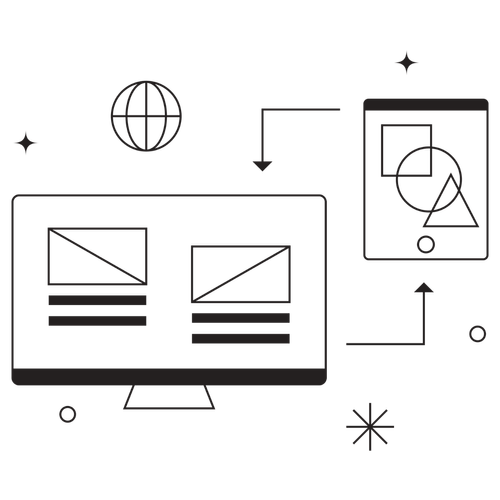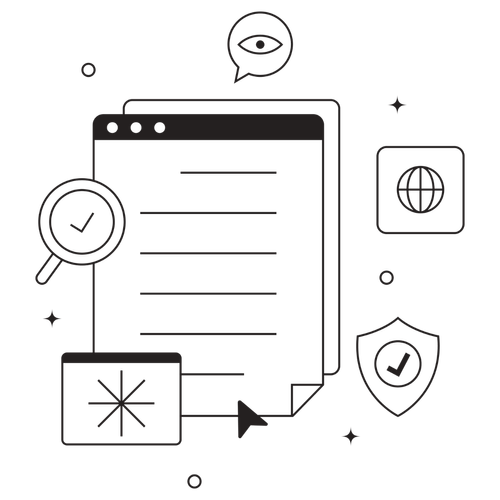SEO Content Creation
As ErisAI, by leveraging AI-powered SEO content creation workflows, you can revolutionize your organic growth, enabling you to efficiently produce high-quality, search-optimized content at scale.
SEO Content Brief Creation
Automate SEO research and content outlining to produce search-optimized briefs at scale, cutting content creation time by hours. This workflow enables you to efficiently create content that ranks for target keywords and attracts organic visitors. It’s ideal for growth-focused marketing teams who want to drive more organic traffic without the manual effort.
- Automate SEO research
- Generate high-quality content briefs
- Save your team hundreds of hours


Brief to SEO Content Creation
Generate high-ranking content from your content brief, eliminating hours of research and writing. Now, you can easily scale your content strategy and drive more organic traffic, without expanding your team. Ideal for busy content marketers looking to boost search rankings and organic growth.
- Generate long-form & SEO-friendly content
- Dominate the SERPs with better content
- Drive more organic traffic
SEO Optimization
Research keywords, analyze content, and implement on-page SEO best practices to quickly create content that ranks. By eliminating hours of manual SEO work, your team can efficiently publish optimized, high-quality content at scale to drive more organic traffic. Perfect for marketing teams who want to improve search visibility and results without getting bogged down in the details.
- Research keywords for the best opportunities
- Analyze your content against Google's guidelines
- Ensure SEO-best practices across your entire site

SEO Content Creation Before AI
In the past, content ideation, creation, and optimization were highly manual and time-consuming processes. Marketing teams often relied on brainstorming sessions, countless revisions, and gut instinct to produce content that resonated with their audiences. This approach made it challenging to consistently create content that was both engaging and optimized for search engines.
The Automation of SEO Content Creation
With the advent of AI-powered content generation and optimization tools, these once cumbersome processes can now be streamlined and automated. AI enables teams to generate, optimize, and scale content with unprecedented efficiency.
AI-Enhanced Idea Generation
AI tools can analyze massive amounts of data, including industry trends, audience preferences, and competitor content, to generate fresh, creative ideas tailored to specific business goals and target audiences. Instead of relying solely on brainstorming, marketers now have access to data-driven insights that significantly improve the relevance and impact of their content.
For example, you can start with just a keyword or even a transcript from a conversation with a Subject Matter Expert (SME), and AI can transform this into a well-structured, optimized content outline.
Content Optimization with AI
AI-powered platforms can analyze existing content and offer data-driven recommendations to improve engagement, persuasiveness, and SEO performance. These insights ensure that content not only aligns with audience needs but also meets SEO best practices, increasing the chances of ranking higher in search engine results pages (SERPs).
The Benefits of Automated SEO Content Creation
1. Efficiency in SEO Research and Content Outlining
Automated SEO research and content outlining allow teams to create search-optimized content briefs at scale. This dramatically reduces the time spent on content creation and enables marketing teams to focus on more strategic elements of SEO, such as adapting to algorithm changes or exploring new keyword opportunities.
2. High-Quality Content Production
AI helps streamline the production of long-form, SEO-friendly content from briefs, eliminating the need for extensive hours of research and writing. This not only helps in scaling content strategy but also ensures that the content adheres to Google’s guidelines, improving the chances of achieving high rankings.
For example, by using AI, teams can produce blog posts, white papers, and landing pages that are both optimized for search and aligned with their target audience’s needs, without compromising quality.
3. Authentic Customer Insights
AI enables teams to convert raw sales call transcripts or customer feedback into polished, SEO-optimized blog posts, case studies, and marketing materials. This ensures that the content resonates with the audience while maintaining authenticity, directly reflecting the voice of the customer.
For instance, turning real customer conversations into content allows businesses to address customer pain points and questions more effectively, creating a deeper connection with their audience.
4. On-Page SEO Optimization
AI tools can efficiently conduct keyword research, content analysis, and implement SEO best practices, allowing teams to swiftly produce content that is optimized for search engines. This automation reduces manual labor and helps increase the likelihood of ranking well in SERPs, ultimately driving more organic traffic.
5. Branding Consistency
AI tools can adapt the tone, style, and messaging of generated content to ensure it reflects a brand’s unique voice. This ensures that all produced content is not only SEO-friendly but also aligned with the brand’s identity, which is essential for maintaining trust and credibility with the audience.
For example, maintaining consistent language and tone across all channels, from blog posts to social media updates, reinforces brand recognition and strengthens customer loyalty.
6. Scalability
AI-powered workflows allow teams to adjust their content production to meet increasing demand without sacrificing quality or efficiency. This scalability is crucial for businesses looking to maintain competitiveness in rapidly evolving markets.
By streamlining content ideation, creation, and optimization, teams can produce more content faster, ensuring they stay ahead of industry trends and market demands.
7. Competitive Advantage
The ability to efficiently produce high-ranking, SEO-friendly content at scale gives teams a significant competitive edge. AI tools enable businesses to dominate SERPs, attract more organic traffic, and accelerate their revenue growth.
For instance, companies leveraging AI to produce optimized content at scale are more likely to outperform competitors who are still relying on manual processes, as they can create more content, faster, and with greater accuracy.
8. Performance Tracking and Continuous Improvement
Integrated AI systems allow teams to track and analyze content performance in real-time. These insights help teams make data-informed adjustments to their strategies, ensuring that their content remains effective over time.
For example, by using AI-powered performance tracking, teams can identify which pieces of content are driving the most traffic, engagement, and conversions, allowing them to refine their strategy for even better results.
Conclusion
AI-powered content creation and optimization significantly enhance the efficiency, quality, and scalability of SEO strategies. By automating processes that were once time-consuming and resource-intensive, teams can not only meet but exceed their content marketing objectives in today’s competitive digital landscape.